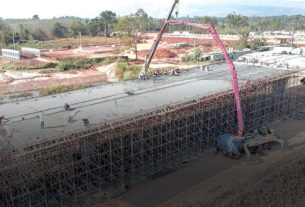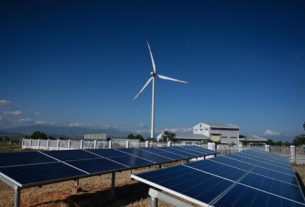Despite regional competition, economic woes, a strong baht and political instability, the country’s highend property sector refuses to tank
 Imagine waking up, shrouded in your 1 million thread count Egyption cotton sheets, to views of the sparkling Andaman Sea outside your balcany window before you head out to your terrace to sip gourmet coffee and read the newpapers next to your infinity pool. Kind of takes the sting out of those doom and gloom articles on economic slides and chaotic currency fluctuations.
Imagine waking up, shrouded in your 1 million thread count Egyption cotton sheets, to views of the sparkling Andaman Sea outside your balcany window before you head out to your terrace to sip gourmet coffee and read the newpapers next to your infinity pool. Kind of takes the sting out of those doom and gloom articles on economic slides and chaotic currency fluctuations.
Such scenarios also make it easier to comprehend why, come bull or bear, the market for luxury properties in
But despite the fact that cash keeps flowing in and the cement mixers keep turning, it obviously hasn’t been a great year for Thailand on the whole and it’s certainly not all glitter and gold for the country’s high-end property markets.
Resort destinations like Phuket and Koh Samui depend heavily on foreign investment, marketing their holiday villas and condominiums to second-home buyers from overseas. Both islands have seen a significant drop in sales volumes this year with international buyers remaining cautious in the wake of the political troubles in May and the rising baht.
“The number of foreigners buying Thai property as a second or retirement residence, or even for investment purposes, has seen a marked decline due to the country’s continued political uncertainty, dampened by the global financial crisis,” says Suphin Mechuchep, managing director at Jones Lang LaSalle, in a recent report on the state of
She adds that high-end sectors including
“The stronger baht currency will diminish the attractiveness of the country’s real estate from foreign buyers’ points of view.”
Add to that restrictive foreign ownership laws and red tape, both of which deter many international visitors from risking a property purchase in
Nevertheless, despite such obstacles a more stable political landscape and better global economic signals have certainly improved the outlook for developers and real estate agents in
Property market down but not out
Reports from a variety of real estate industry analysts say domestic sales are holding up well, especially at the more affordable end of the price ladder, while strong demand for residential properties is also coming from new investment sources such as
According to a research report by property developer
As a measure of the property market’s health, the Thailand Property Awards offer an interesting annual insight. This year’s gala dinner at the Grand Hyatt Erawan in
“The Property Awards are more than a recognition of achievements within the industry,” says Andrew Batt, publishing director of Property Report South East Asia. “They are also a reflection of the market’s strength and versatility. With new ideas, innovations and strategies being implemented all the time, the residential property sector in
Deputy Prime Minister Tierong Suwnanakiri addressed the gathering in a speech that highlighted the continued significance of both Thai and foreign investments in the country’s residential sector. He pointed out the importance of a crossover with the tourism sector, where luxury private holiday rentals now play an important role in addition to hotels and resorts.
Later in the evening, some 29 developers, real estate agents and architects were awarded by their peers, many of them well established players with a long standing track record of success.
The awards certainly provide the winners with a powerful weapon for their marketing arsenal as the TPA are governed by strict regulations and based on nominations by the general public and industry experts. Submissions are judged by a panel of professionals and include site visits for the top short-listed developments in each category.
These include: Best Developer, Best Villa Development, Best Condo Development, Best Architectural Design, as well as a Green Development Award. (For the full list of 2010 winners, click here.)
In this year’s acceptance speeches almost all the recipients expressed confidence in the future of the market.
“It’s always encouraging to hear such positive comments from the industry’s leading players,” says Terry Blackburn, managing director of Ensign-Media Ltd, which organizes the event. “Although it’s been a difficult year for some companies, there have also been several landmark deals.
“
With all this activity and diversity, the Thai property scene seems poised not only to recover but eventually rebound thanks to a wide range of domestic and international clients still looking to buy property.
Source: http://www.cnngo.com/bangkok/life/desire-live-dream-keeps-thai-property-market-afloat-917007



